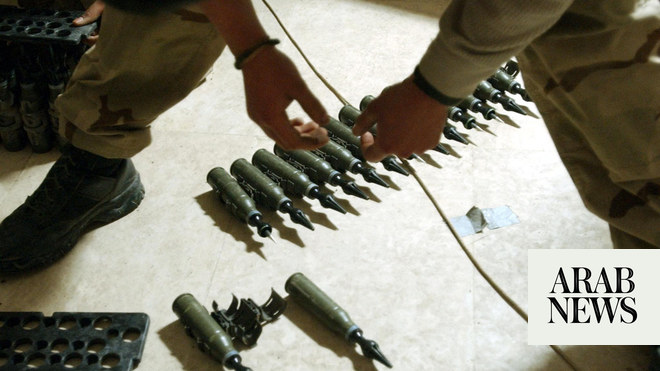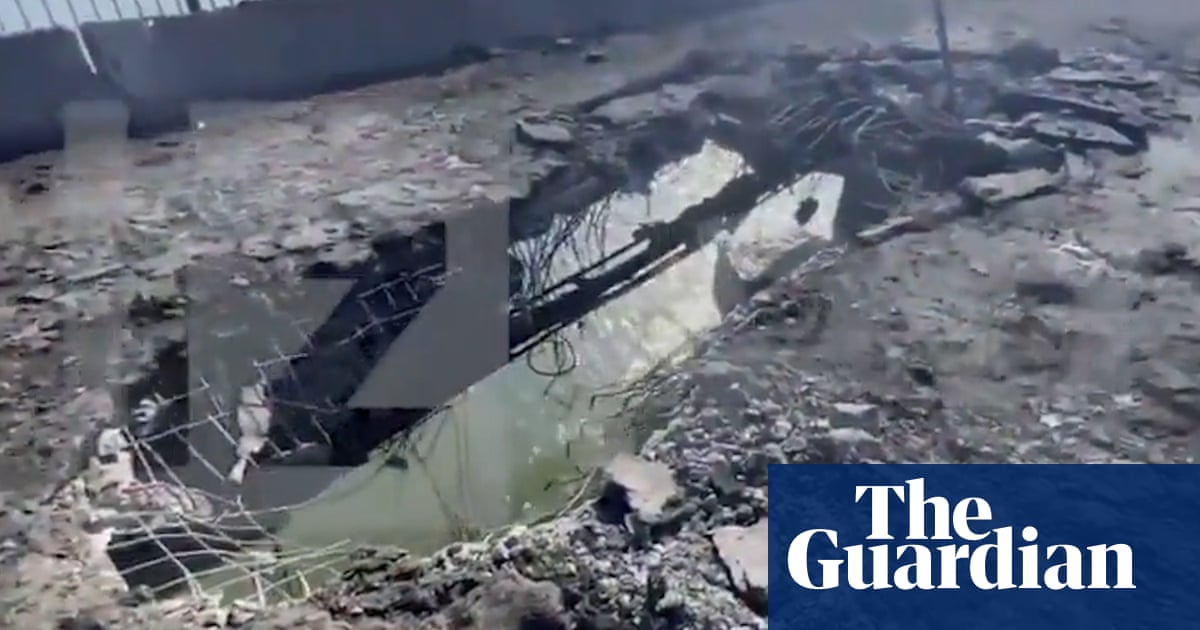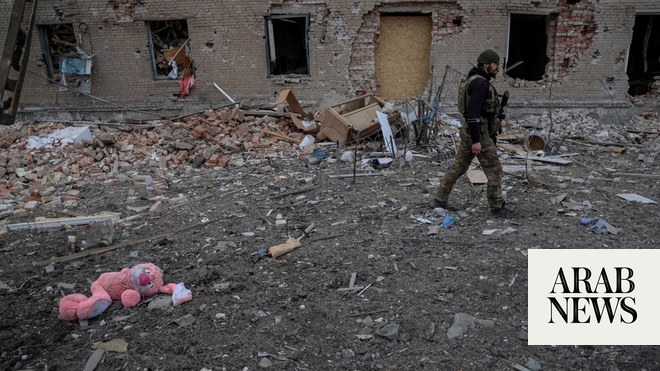
The US has alleged that Russian intelligence is recruiting current and former Ukrainian government officials to take over the government in Kyiv and cooperate with a Russian occupying force.
The US Treasury on Thursday imposed sanctions on two Ukrainian members of parliament and two former officials it said were involved in the alleged conspiracy, which involved discrediting the current government of the president, Volodymyr Zelenskiy.
“Russia has directed its intelligence services to recruit current and former Ukrainian government officials to prepare to take over the government of Ukraine and to control Ukraine’s critical infrastructure with an occupying Russian force,” the Treasury statement accompanying the sanctions said.
The claims suggest US intelligence fears Russia is preparing a full-scale invasion and not the “minor incursion” that Joe Biden referred to as a possibility in remarks on Wednesday that triggered alarm in Kyiv.
Online researchers have identified Russian troops and military vehicles within just ten miles of Ukraine’s borders, increasing the risk that Vladimir Putin could launch a military offensive on short notice.
Local media showed Russian troops arrived in the town of Yelsk in Belarus and at other points near the border with Ukraine as part of joint military exercises set to begin next month. Russian forces there include rocket artillery, anti-air systems, and possibly elite units such as speznaz.
An investigation by the Conflict Intelligence Team and Radio Svoboda raised questions of whether the deployments were just an exercise, as some family members said the soldiers were deploying for months.
In his earlier remarks Biden seemed to say that if Russia invaded just a small part of Ukraine, the Nato alliance would be divided on how to respond. Speaking on Thursday, the US president sought to clarify those comments.
“If any assembled Russian units move across the Ukrainian border, that is an invasion,” he said. “Let there be no doubt if Putin makes this choice, Russia will pay a heavy price.”
Biden added that the US and its allies would also have to be ready to respond if Russia employed “measures other than overt military action to carry out aggression” against Ukraine.
The president was speaking soon after Zelenskiy complained in a tweet: “We want to remind the great powers that there are no minor incursions and small nations. Just as there are no minor casualties and little grief from the loss of loved ones.”
The US has threatened unprecedented sanctions against Russia if it goes ahead with an invasion, though there are disagreements with European allies, as Biden admitted on Wednesday, on how extensive the punitive measures should be. European capitals have resisted the suggestion that Russia should be cut off from the international electronic payment system, Swift.
The US, the UK and other allies have also continued to supply arms to Ukraine, in a move aimed at raising the costs of an invasion, and potentially contributing to a Ukrainian insurgency in the wake of an invasion.
Despite the threats, Russian forces have continued to build up near the Ukrainian border. Short-range ballistic missiles and tanks have been pictured heading westwards on trains from positions in Russia’s far east. Satellite imagery shows increasing numbers of encampments of men and equipment in the Ukrainian border region, and Russian and Belarusian troops have been conducting military exercises, which the US says are unusually large and carried out without giving sufficient notice.
The two MPs the US has placed sanctions on were named as Taras Kozak and Oleh Voloshyn, both members of a pro-Russian party led by Victor Medvedchuk, an oligarch who has been under house arrest in Ukraine since last May, accused of treason.
A former Ukrainian official, Volodymyr Oliynyk, now living in Russia, has a sanction against him for working “at the direction of the FSB [Russian intelligence] to gather information about Ukrainian critical infrastructure”.
The fourth man named is Vladimir Sivkovich, a former deputy secretary of the Ukrainian national security and defence council.
“In 2021, Sivkovich worked with a network of Russian intelligence actors to carry out influence operations that attempted to build support for Ukraine to officially cede Crimea to Russia in exchange for a drawdown of Russian-backed forces in the Donbas,” the US Treasury alleged.
Voloshyn denied being a Russian asset and said he had never “wittingly” talked to the FSB or any other Russian spy agency. He said he was an elected MP for an explicitly pro-Russian political party and that his US-sceptical views reflected those of some Ukrainian voters.
Voloshyn said he suspected he was being punished for calling – unsuccessfully – for a parliamentary investigation into Biden’s son, Hunter, and his work in Ukraine.
In an interview, Voloshyn described US accusations against him as “strange”. He said he had been interviewed by the FBI last summer when he flew to Washington, adding that he had been in contact regularly in the past with the US embassy in Kyiv.
He said he last visited Moscow in November for a national prayer breakfast – his first trip to Russia for two years. “There were several Americans at the same breakfast,” he said. Voloshyn said he knew Kozak but had never met the other two Ukrainians targeted with sanctions.
The three other men could not immediately be reached for comment. Russia has denied it plans to invade Ukraine, but it has massed over 100,000 troops along the country’s border.
“There’s been a lot of speculation about President Putin’s true intentions, but we don’t actually have to guess. He’s told us repeatedly. He’s laying the groundwork for an invasion because he doesn’t believe that Ukraine is a sovereign nation,” the US secretary of state, Tony Blinken, said in a speech in Berlin.
Blinken is due to meet his Russian counterpart, Sergei Lavrov, in Geneva on Friday.
Three sets of talks between Russia, the US, Nato and other European states last week, failed to make any progress.
The US and Nato have offered negotiations on limiting missile deployments and military exercises, but Russian officials have demanded sweeping security guarantees, that Ukraine is never join Nato, and that the alliance will withdraw forces from member states in eastern Europe who were once part of the communist bloc.












